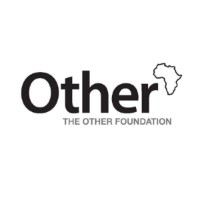Even with severe attacks or rapes, these are not reported because of fears of further harassment. (John McCann/M&G)
“I am one of the people who say: ‘Home is the best’ … Coming to this country, I was thinking that I was going to a little haven, but it was not true.” — Pukkie Tsonyeni of Tanzania, from the book My Home, My Body, My Dreams: Reflections of LGBTQI Refugees in South Africa.
It had become too much for Abbo Bigombe*. The years-long discrimination and abuse she faced in her country of birth, Uganda, had taken its toll, forcing her to flee to South Africa.
“Life was not easy for me,” Bigombe, a transgender woman, says. “All the time, people were fighting with me, saying I am not a woman. Why am I acting like a woman; I must be a man. Even one guy, he shot me because he said I am not a woman, I am a man. You see, I have a damage here,” she adds, pointing out the years-old scar. “I was in hospital for six months.”
There had also been numerous arrests. “The first time I was in jail, two months, three months. The last time, I was in jail for one year. That time, the magistrate gave me a warning: ‘If you come back in my court, I will give you a life sentence.’ It was then that I left my country and came to South Africa.”
The 12 years she has been living here have also not been easy. “Especially if you are a foreigner. Sometimes if you are in the taxi, and you don’t speak a South African language, there’s too much discrimination. All the people will start talking: ‘Why did you run away from your country?’”
Precious Mahere* is a transgender woman from Zimbabwe, who fled her country more than five years ago.
Now she faces discrimination from both South Africans and people from her home country. “They would call me a ghost or a vampire. They would say: ‘We don’t allow this in Zimbabwe, so you run away to come and do this kind of shit here.’ The same applies to people from other countries, like Nigeria or other countries. They also call you with these different names. It makes you feel out of place, uncomfortable, lost. It makes you feel like you are nothing,” she says.
Both women do not believe that reporting harassment and abuse to the police is an option.
“Like last year, end of the year, I was walking on the Grand Parade [in Cape Town] and this guy started calling me devil. I say to him: ‘Please, I am not a devil.’ But he hit me. Hit me, hit me, hit me,” Bigombe says. “He wanted to kill me. It was daytime, but nobody even helped me. People were laughing, saying: ‘This is a moffie, not a woman’.”
Forced to go to hospital “because I had damage to my eyes”, she tried opening a case against her attacker, “but the police dismissed this; the police just laugh”.
Victor Chikalogwe is the gender rights and lesbian, gay, bisexual and transgender refugee project co-ordinator of People Against Suffering, Oppression and Poverty, a nonprofit human rights organisation.
“We find that, with the police, if you report anything that has happened to you, the next thing they will ask you [is] where are you from,” Chikalogwe says. “The moment they realise you are not South African, they would say: ‘No, but you just have to get used to such issues.’ We have had so many such cases where no action has been taken.”
Even with severe attacks or rapes, these are not reported because of fears of further harassment. “People are suffering just because they are scared of the police. We can’t even talk about training. That has been done. It’s just that I think they chose to ignore issues of the trans community,” Chikalogwe says.
Liberty Matthyse, executive director of Gender Dynamix, says there is “a particular marginalisation and inhumane treatment” experienced by trans and gender-diverse persons who are not South African nationals. “This is a double whammy of some sorts when it comes to trying to vindicate their human rights, even within the criminal justice system.”
A 2017 report by the Hate Crimes Working Group found “it is most disconcerting that there are still some schoolteachers (and principals), police officers and healthcare providers who discriminate against certain persons who seek their services”.
The report found that 7% of perpetrators of hate crimes were police officers, 8% of victims were trans women and more than half of victims (58%) were not born in South Africa. The most frequently recorded “motivations for prejudice” were nationality (45%), sexual orientation (17%), religion (14%) and gender identity or expression (11%).
“I don’t understand,” says Bigombe. “Because people say in South Africa gays, lesbians, trans people have freedom. So which freedom do some of us have? Because someone can kill you and no one [will] help you.
“Even the police sometimes calling us names like moffie. I’m not a moffie, I’m a human being. I didn’t wake up one morning and say I want to be like this. No … And some people don’t understand trans women.
“For me, sometimes I feel I want to kill myself. But sometimes I think why must I kill myself for these people? I say, that’s me; I can’t kill myself. I’m tired. I don’t know where I can go … I don’t have peace here in South Africa … I’m not safe.”
* Not their real names
Carl Collison is the Other Foundation’s Rainbow Fellow at the M&G
